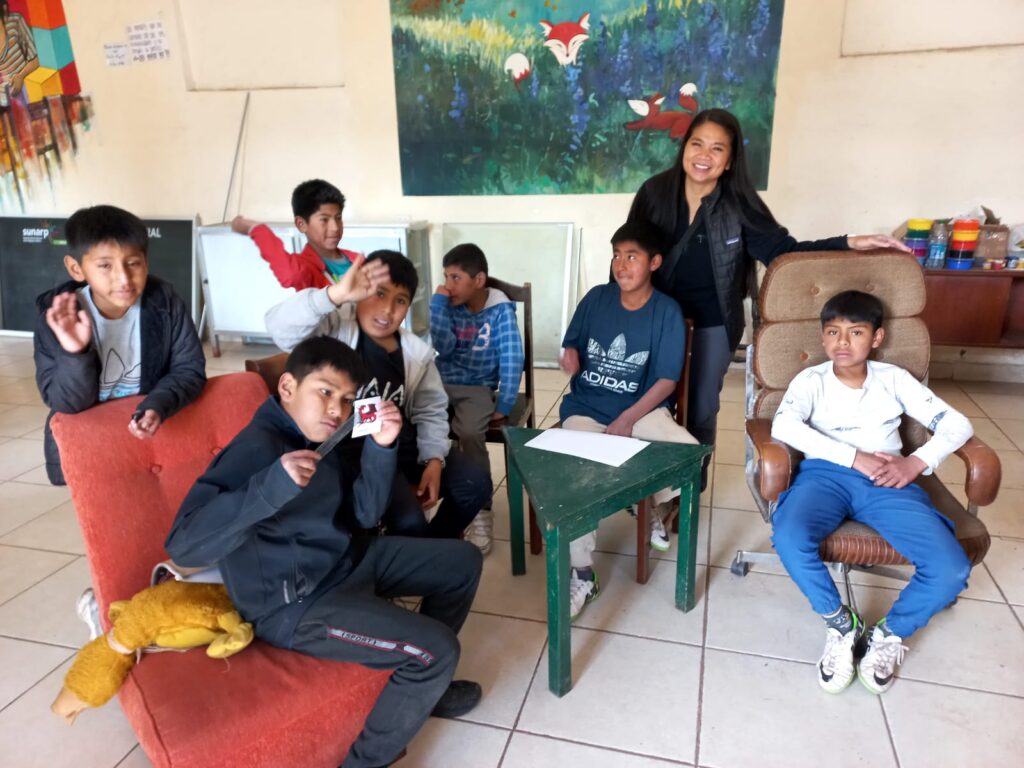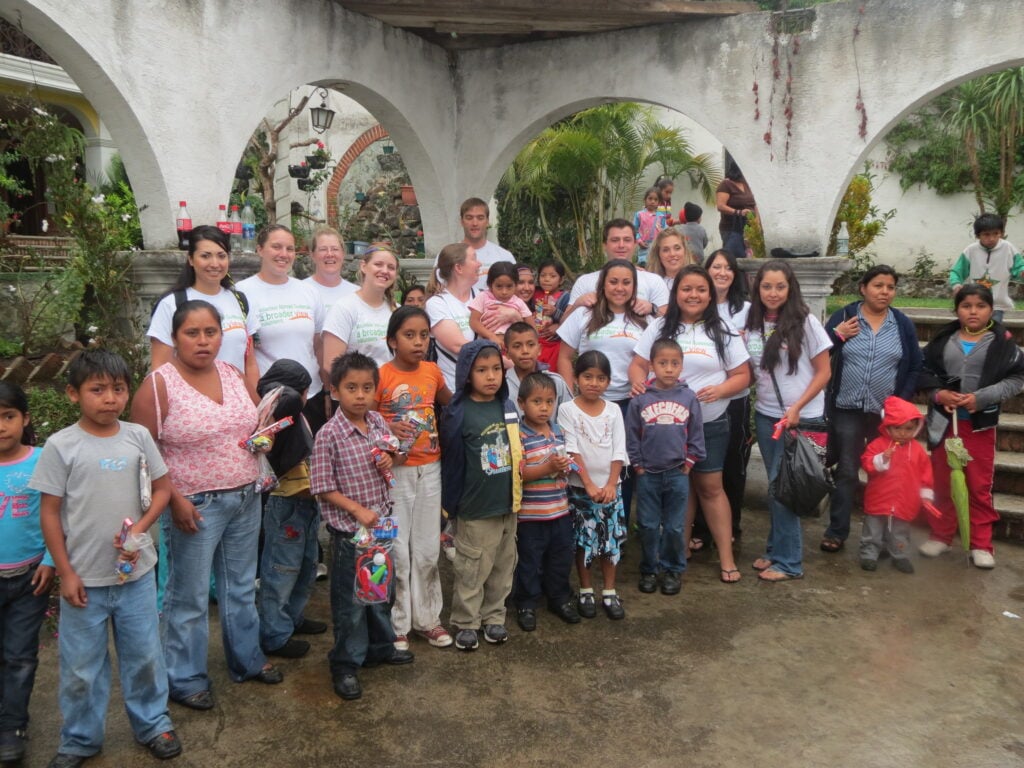Welcome to the exciting world of cross-cultural exchange programs! If you’re a cultural enthusiast who loves exploring different cultures, traditions, and lifestyles, then you’re in for an adventure of a lifetime.
Whether you’re looking to expand your horizons, gain a global perspective, or simply indulge your curiosity, cross-cultural exchanges provide a unique opportunity to immerse yourself in another culture and form meaningful connections with people from around the world.
In this article, we’ll delve into the fascinating realm of cross-cultural exchange programs. We’ll explore the definition and purpose of these programs, the benefits they offer, and the various types of cultural exchanges available.
We’ll also guide you on how to choose the right cross-cultural exchange program for your interests and objectives, as well as provide tips on preparing for and experiencing a successful exchange. Lastly, we’ll discuss the incredible benefits and impacts of cross-cultural exchanges that extend far beyond the duration of your program.
So, strap on your cultural exploration hat, and let’s embark on this enriching journey together!

Understanding Cross-Cultural Exchange
Do you love immersing yourself in different cultures and meeting people from around the world? If so, cross-cultural exchange programs might be just what you’re looking for! These programs offer a unique opportunity to experience another culture firsthand and build lasting connections with people from diverse backgrounds. In this article, we’ll explore the world of cross-cultural exchange, including its definition, benefits, and various types of programs available. So, let’s dive in and expand our horizons together!
Definition and Purpose
Cross-cultural exchange refers to the process of individuals or groups from different cultures coming together to share knowledge, ideas, values, and experiences. It is an enriching experience that promotes cultural understanding and fosters global connections. The purpose of cross-cultural exchange is to break down barriers, challenge stereotypes, and bridge the gap between different societies.
Benefits of Cross-Cultural Exchange
Engaging in cross-cultural exchange programs offers numerous benefits that extend beyond simply acquiring knowledge about another culture. Here are some key advantages:
- Cultural Understanding: By immersing yourself in a different culture, you gain a deeper understanding of its traditions, customs, beliefs, and way of life.
- Personal Growth: Cross-cultural exchange challenges you to step out of your comfort zone, fostering personal growth and self-discovery. It helps you develop adaptability, resilience, and intercultural competence.
- Global Perspective: Experiencing different cultures broadens your perspective on the world, allowing you to see issues from multiple viewpoints. You gain a deeper appreciation for cultural diversity and the interconnectedness of our global society.
- Networking Opportunities: Cross-cultural exchange provides an excellent opportunity to build a network of international connections. The friendships and relationships you form can open doors to future collaborations, travel opportunities, and even career prospects.

Types of Cultural Exchanges
Cross-cultural exchange programs come in various forms, catering to different interests and objectives. Here are some popular types of cultural exchanges:
| Type of Exchange | Description |
|---|---|
| Government-Sponsored | These programs are funded and supported by governments, promoting cultural diplomacy, education, and intercultural dialogue on a national level. |
| Nonprofit and NGO | Nonprofit organizations and NGOs organize these exchanges, focusing on specific cultural, educational, or social issues. Participants often engage in community service or advocacy work. |
| University and Academic | Universities and academic institutions offer exchange programs for students, faculty, and researchers to study abroad, conduct research, or teach in a different cultural setting. |
| Artist and Performer | Artists, musicians, actors, and dancers can participate in exchange programs that enable them to perform, exhibit, or collaborate with other artists internationally. |
Whether you’re interested in exploring diplomacy, education, community service, or the arts, there’s a cross-cultural exchange program out there for you!
In the next section, we’ll delve into popular cross-cultural exchange programs available to cultural enthusiasts like yourself. So, get ready to embark on an exciting journey of cultural exploration and connection!
“The world is a book, and those who do not travel read only one page.” – Saint Augustine
Popular Cross-Cultural Exchange Programs
Are you a cultural enthusiast looking to deepen your understanding of different cultures and expand your global perspective? Participating in a cross-cultural exchange program might just be the perfect opportunity for you! These programs offer valuable experiences that enable individuals to immerse themselves in new cultures, make meaningful connections, and learn from others around the world.
So, if you’re ready to embark on a cross-cultural adventure, here are some popular exchange programs to consider:

1. Government-Sponsored Exchange Programs
Governments around the world often sponsor cross-cultural exchange programs to promote cultural understanding and diplomatic relations. These programs provide opportunities for individuals to live and work in a foreign country while engaging with locals. Some well-known government-sponsored exchange programs include:
- Fulbright Program: Established by the U.S. Department of State, the Fulbright Program offers various grants for students, scholars, and professionals to study, teach, or conduct research abroad.
- Erasmus+: This European Union program supports student exchanges, internships, and volunteer opportunities across participating European countries.
- Japan Exchange and Teaching (JET) Program: Administered by the Japanese government, the JET Program invites native English speakers to teach English in Japan and promote cultural exchange.
2. Nonprofit and NGO Exchange Programs
Nonprofit organizations and non-governmental organizations (NGOs) also play a crucial role in facilitating cross-cultural exchanges. These programs often focus on specific themes such as education, sustainability, or community development. Notable nonprofit and NGO exchange programs include:
- AIESEC: A global youth-led organization that offers volunteer and internship programs in various countries, allowing participants to develop leadership skills and contribute to social impact projects.
- World Wide Opportunities on Organic Farms (WWOOF): WWOOF connects volunteers with organic farms worldwide, promoting sustainable agriculture and cultural exchange.
- International Student Exchange Programs (ISEP): ISEP offers study abroad opportunities for university students, enabling them to experience life and academics in another country.
3. University and Academic Exchange Programs
Many universities have established partnerships with institutions around the world to create academic exchange programs. These programs allow students and faculty members to study, research, or teach abroad while gaining valuable intercultural experiences. Here are a few renowned university and academic exchange programs:
- Erasmus Mundus: This program offers joint master’s degree programs and scholarships for students from both European and non-European countries, promoting academic mobility and collaboration.
- University Mobility in Asia and the Pacific (UMAP): UMAP facilitates student exchanges and academic cooperation among universities in the Asia-Pacific region, fostering international understanding and regional integration.
- International Research and Exchanges Board (IREX): IREX offers various exchange programs, fellowships, and grants for researchers, scholars, and professionals in fields such as education, media, and governance.
4. Artist and Performer Exchange Programs
For those in the creative fields, artist and performer exchange programs provide opportunities to showcase their talents in different cultural contexts. These programs often involve collaborations, residencies, and performances. Some prominent artist and performer exchange programs include:
- International Federation of Musicians (FIM): FIM organizes music exchanges and events, promoting cultural diversity and collaboration among musicians worldwide.
- International Theatre Institute (ITI): ITI facilitates cultural exchange and artistic collaboration among theater professionals through its various programs and initiatives.
- UNESCO Creative Cities Network: This network connects cities worldwide that have been designated as “Creative Cities” by UNESCO, fostering cooperation and exchange in the fields of art, design, literature, film, and more.
Remember, these are just a few examples of the diverse range of cross-cultural exchange programs available. When choosing a program, consider your interests, goals, and desired outcomes. Conduct thorough research, read reviews from past participants, and reach out to program providers for more information.
Embarking on a cross-cultural exchange program is an enriching experience that not only broadens your horizons but also fosters tolerance, understanding, and lifelong friendships. So, embrace the opportunity to learn from others, immerse yourself in different cultures, and make a positive impact on the world!

Choosing the Right Cross-Cultural Exchange Program
When it comes to embarking on a cross-cultural exchange, choosing the right program is crucial. With so many options available, it can be overwhelming to decide which one is the best fit for you. To help you make an informed decision and ensure a rewarding experience, consider the following factors when choosing a cross-cultural exchange program:
Identifying Your Interests and Objectives
Before diving into the world of cross-cultural exchange programs, take a moment to reflect on your interests, goals, and objectives. What aspects of a culture are you most passionate about? Are you looking to learn a new language, immerse yourself in a specific art form, or explore a particular area of academic study? By identifying your interests and objectives, you can narrow down your options and find a program that aligns with your passions.
Researching Program Credibility and Reputation
It’s essential to choose a cross-cultural exchange program that has a good reputation and a strong track record of providing quality experiences. Conduct thorough research on the programs you are interested in. Look for online reviews, testimonials from past participants, and any official recognition or accreditation the program may have. Additionally, consider reaching out to former participants to get firsthand insights into their experiences with the program.
Considering Program Costs and Funding Options
Finances are an important aspect to consider when choosing a cross-cultural exchange program. Determine your budget and evaluate the costs associated with each program you are considering. Take into account factors such as program fees, travel expenses, accommodation, and living costs. Additionally, explore funding options such as scholarships, grants, or sponsorships that may be available to support your participation in the program.
Evaluating Program Duration and Commitment
Cross-cultural exchange programs can vary in duration, ranging from a few weeks to several months or even a year. Consider how much time you are willing and able to commit to the program. Think about any personal or professional commitments you have and how they may impact your ability to participate fully in the program. Assess the program’s schedule and determine if it aligns with your availability and commitment level.
By taking these factors into consideration, you can make an informed decision when choosing a cross-cultural exchange program. Remember that each program is unique, offering its own set of opportunities and experiences. Don’t hesitate to reach out to program organizers or alumni for additional information or clarification on any questions you may have. Once you have selected the right program for you, you can begin preparing for an enriching and transformative cross-cultural exchange.
Preparing for a Cross-Cultural Exchange
Embarking on a cross-cultural exchange program is an exciting adventure that allows you to immerse yourself in a new culture, learn new perspectives, and make lifelong connections. However, before you pack your bags and jet off to your destination, it’s important to prepare yourself for the cross-cultural experience ahead. Here are some key steps to ensure a successful and enriching cross-cultural exchange:
Learning about the Host Culture
Before you embark on your cross-cultural exchange, take the time to educate yourself about the culture of your host country. This will not only enhance your understanding of the local customs and traditions but also help you navigate through daily life. Consider doing the following:
- Read books or watch documentaries about the history, customs, and traditions of the host country.
- Follow local blogs or social media accounts to get a sense of the current events and popular culture.
- Study the basics of the local language to help you communicate and connect with the locals.
Mastering Basic Language Skills
While it may not be necessary to become fluent in the local language, learning some basic phrases can go a long way in facilitating communication and building relationships. Here’s how you can improve your language skills:
- Take language lessons or enroll in language exchange programs before your trip.
- Practice speaking with native speakers or language partners to build your confidence.
- Use language learning apps or online resources to supplement your studies.
Understanding Cultural Etiquette and Customs
Each culture has its own set of customs and etiquette, and it’s important to familiarize yourself with them to avoid any cultural misunderstandings or unintentional offenses. Here are some tips:
- Learn about proper greetings, gestures, and body language in the host culture.
- Research the dining etiquette and table manners to ensure you are respectful during meals.
- Understand the concept of personal space and appropriate social interactions in the host country.
Packing Essentials for a Successful Exchange
Proper packing is essential to ensure you have everything you need for a smooth and enjoyable cross-cultural exchange. Consider the following when packing for your trip:
- Pack appropriate clothing that aligns with the local cultural norms and climate.
- Bring essential documents such as your passport, visa, insurance information, and emergency contacts.
- Include personal items that can help you navigate any challenges, such as a universal adapter, a phrasebook, and a small first-aid kit.
By taking the time to prepare and educate yourself before your cross-cultural exchange, you will be better equipped to adapt to your host culture and maximize your experience. Keep an open mind, embrace differences, and be ready to step out of your comfort zone. As American anthropologist Margaret Mead once said, “Never doubt that a small group of thoughtful, committed citizens can change the world. Indeed, it is the only thing that ever has.” So, embark on your cross-cultural exchange with enthusiasm and make a positive impact on the world!
Experiencing a Cross-Cultural Exchange
Experiencing a cross-cultural exchange is an exciting and enriching opportunity to immerse yourself in a different culture, learn about new traditions, and make connections with people from around the world. It is a chance to broaden your horizons, challenge your perspectives, and grow as a global citizen. In this section, we will explore some key aspects of experiencing a cross-cultural exchange.

Immersing Yourself in the Local Community
One of the best ways to fully experience a cross-cultural exchange is to immerse yourself in the local community. This means going beyond tourist attractions and trying to engage with the everyday lives of the locals. Here are some tips to make the most of your immersion:
- Stay with a host family: Living with a local family provides a unique opportunity to experience their daily routines, traditions, and customs firsthand.
- Participate in community events: Attend local festivals, fairs, or community gatherings to gain insights into the cultural traditions and celebrate with the locals.
- Join clubs or participate in activities: Engage in activities that interest you, such as joining a sports team, volunteering at a local organization, or taking part in art or music classes. This will allow you to interact with locals who share similar interests.
Participating in Cultural Activities and Events
A cross-cultural exchange offers numerous opportunities to engage in cultural activities and events that can enhance your understanding of the host culture. Here are some ways to make the most of these experiences:
- Visit museums and historical sites: Explore museums, historical sites, and landmarks to learn about the host country’s history, art, and architecture.
- Try local cuisine: Indulge in the local cuisine and try traditional dishes. Food is often an integral part of a country’s culture and can provide insights into its flavors and culinary traditions.
- Attend cultural performances: Whether it’s a traditional dance, music concert, or theater performance, attending cultural events allows you to witness the artistic expressions of the host culture.
- Explore local markets: Wander through local markets and shops to get a taste of the vibrant local craftsmanship, products, and everyday life.
Building Relationships and Making Friends
One of the most rewarding aspects of a cross-cultural exchange is the opportunity to build relationships and make friends with people from different backgrounds. These connections can last a lifetime and create a global network of friends. Here are some tips for building meaningful relationships:
- Be open-minded and respectful: Approach interactions with an open mind, respect for differences, and a genuine desire to learn from others.
- Initiate conversations: Start conversations with locals and fellow participants. Ask questions about their culture, traditions, and experiences, and share your own perspectives.
- Participate in group activities: Engage in group activities organized by your exchange program or local community to meet fellow participants and locals who share similar interests.
- Maintain contact: Stay in touch with the friends you make during your cross-cultural exchange. Social media platforms and digital communication make it easier than ever to stay connected across borders.
Adapting to Cultural Differences and Challenges
Experiencing a cross-cultural exchange may also come with its fair share of challenges. Adapting to cultural differences and navigating unfamiliar environments can sometimes be challenging. However, with an open mind and a willingness to learn, you can overcome these challenges. Here are some tips for navigating cultural differences:
- Be flexible and adaptable: Embrace the cultural differences you encounter and adjust your expectations and behavior accordingly.
- Observe and learn: Pay attention to the cultural norms and practices of the host country and try to understand the reasoning behind them.
- Ask for help when needed: If you find yourself struggling with cultural differences or facing challenges, don’t hesitate to seek guidance or support from program coordinators, host families, or local friends.
Experiencing a cross-cultural exchange is a unique and transformative journey that allows you to broaden your perspectives, challenge your assumptions, and develop a deeper understanding of the world. By immersing yourself in the local community, participating in cultural activities, building relationships, and adapting to cultural differences, you are sure to create lasting memories and gain invaluable insights that will stay with you long after your exchange program is over.

“Traveling – it leaves you speechless, then turns you into a storyteller.” – Ibn Battuta
Benefits and Impacts of Cross-Cultural Exchanges
Participating in cross-cultural exchange programs can offer a multitude of benefits and have a lasting impact on individuals. These programs provide opportunities to engage with people from different cultural backgrounds, explore new perspectives, and develop a deeper understanding of the world. Let’s take a closer look at some of the key benefits and impacts of cross-cultural exchanges:
Personal Growth and Global Perspective
Cross-cultural exchanges offer a transformative personal growth experience. By immersing yourself in a different culture, you gain a broader view on life, develop self-awareness, and become more adaptable to new situations. These experiences can help you break out of your comfort zone and discover new aspects of your own identity. You may find that you develop a newfound appreciation for diversity, which can greatly enrich your personal and professional life.
Enhanced Intercultural Communication Skills
One of the major benefits of cross-cultural exchanges is the opportunity to develop excellent intercultural communication skills. As you interact with individuals from different backgrounds, you naturally become more adept at navigating language barriers, understanding non-verbal cues, and finding common ground. These skills are highly valuable in today’s globalized world and can greatly enhance your ability to work effectively in multicultural environments.
Increased Tolerance and Cultural Sensitivity
Engaging in cross-cultural exchanges fosters increased tolerance and cultural sensitivity. As you learn about different customs, traditions, and practices, you develop a deeper appreciation for the unique aspects of each culture. This exposure helps break down stereotypes and prejudices, promoting a more inclusive and empathetic society. You become more open-minded and accepting of diverse perspectives, which can positively impact your relationships and interactions with people from all walks of life.
Long-lasting Friendships and Connections
One of the most cherished outcomes of cross-cultural exchanges is the formation of long-lasting friendships and connections. When you participate in these programs, you have the opportunity to meet people from around the world who share similar interests and passions. The bonds you form during these experiences often transcend distance and time, leading to lifelong friendships and valuable professional connections. These friendships can provide you with a global network and open doors to exciting opportunities in the future.
Cross-cultural exchanges have a profound impact on individuals, allowing them to grow personally, develop valuable skills, and foster connections with people from diverse backgrounds. These experiences provide a unique platform for self-discovery, cultural appreciation, and building a more inclusive world. So, if you have the opportunity to embark on a cross-cultural exchange program, seize it with open arms and embrace the transformative journey that awaits you!
“The world is a book, and those who do not travel read only a page.” – Saint Augustine
Conclusion
In conclusion, participating in a cross-cultural exchange program can be a life-changing experience. It allows individuals to immerse themselves in a new culture, gain a deeper understanding of global perspectives, and build meaningful connections with people from around the world. Whether you are a cultural enthusiast, a student, an artist, or simply someone who wants to broaden their horizons, there are a variety of exchange programs available to suit your interests and objectives.
By choosing the right program, doing thorough research, and adequately preparing for the experience, you can make the most out of your cross-cultural exchange. Remember to learn about the host culture, master basic language skills, and understand cultural etiquette and customs. And don’t forget to pack essential items that will help you navigate through your new environment.
During your exchange, make an effort to immerse yourself in the local community, participate in cultural activities and events, and build relationships with locals. Embrace the cultural differences and challenges that you may encounter, as they will contribute to your personal growth and development. And most importantly, treasure the friendships and connections you form during your exchange, as they can last a lifetime.
The benefits and impacts of cross-cultural exchanges are far-reaching. Not only do they enhance personal growth and global perspective, but they also improve intercultural communication skills and foster increased tolerance and cultural sensitivity. Through cross-cultural exchanges, friendships and connections are formed across borders, creating a more interconnected and inclusive world.
So, whether you dream of exploring ancient traditions in Japan, sipping coffee in a Parisian café, or dancing to the beat of samba in Brazil, consider participating in a cross-cultural exchange program. Open your mind to new experiences, broaden your understanding of the world, and embrace the beauty and richness of different cultures. Remember, the world is waiting for you to explore it.

Frequently Asked Questions
- What are the benefits of participating in a cross-cultural exchange program?
Participating in a cross-cultural exchange program allows you to gain a deeper understanding of different cultures, develop intercultural communication skills, make lifelong connections with people from around the world, and broaden your global perspective.
- How long do cross-cultural exchange programs usually last?
The duration of cross-cultural exchange programs can vary, but they typically last anywhere from a few weeks to several months. Some programs even offer year-long exchange opportunities.
- What types of activities are typically included in cross-cultural exchange programs?
Cross-cultural exchange programs often include a combination of activities such as language classes, cultural workshops, guided tours, homestays with local families, community service projects, and interactive cultural immersion experiences.
- How can I find a reputable cross-cultural exchange program?
To find a reputable cross-cultural exchange program, you can start by researching well-established organizations that specialize in cultural exchange. Read reviews, speak to program alumni, and consider factors such as program reputation, safety measures, support services, and cultural immersion opportunities.
- Are there any age restrictions for participating in cross-cultural exchange programs?
Age restrictions can vary depending on the specific program. Some programs may have minimum age requirements (e.g., 18 or older), while others may offer opportunities for both teenagers and adults. It’s important to check the eligibility criteria of each program before applying.
-
Volunteering Abroad with Medical Missions: Make a Difference Today

Join medical group trips, Nurses Without Borders, and Dentists Without Borders to make a difference in underserved communities worldwide. Learn about the countries where these programs operate and read real-life experiences from volunteers. Volunteering overseas is an excellent opportunity to make a difference in the lives of others while experiencing new cultures and forging unforgettable…
-
Embrace Overseas Service | Transform Lives Through Global Volunteerism

International Volunteering: Discover Meaningful Travel and Transform Lives with A Broader View
-
A World of Opportunities: Unveiling the Benefits of International Volunteer Programs

Discover numerous benefits of international volunteer programs and unleash a world of rewarding opportunities with our in-depth guide.



